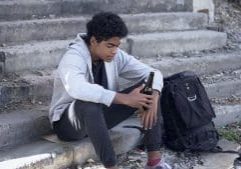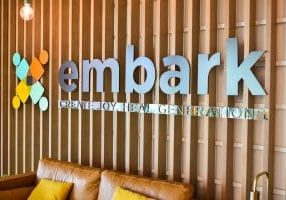Partial Hospitalization Programs
Therapeutic Day Programs
Caring, Supportive Day Treatment
Parents are often put off by the phrase “partial hospitalization”. The term is mainly a vestige of the past when PHPs were attached to hospitals and existed primarily to serve adults. Insurance companies still use the same definition for a robust Therapeutic Day Program. Teen and young adult Day Treatment (PHPs) at the best programs now take place in a reassuring, non-institutional, comfortable environment where adolescents, teens, and young adults can receive non-judgmental therapy, engage in therapeutic activities, and work on school during the day. A preferred, and more appropriate, name for a PHP is a “Therapeutic Day Program” or School.
The goal of a Therapeutic Day Program (TDP) is to help young people grow and heal their relationships, their internal wounds, and improve their self-worth, coping skills, and other vital elements that lead to a more joyful-filled life.
Young people who attend partial hospitalization programs typically receive five hours of clinical interventions (specialized therapies, group therapy etc.), five days per week, as well as schooling and other activities. The length of the day can vary, and the longer the day the more experiential therapy activities are provided such as yoga, art, music, exercise, meditation, mindfulness, and offsite excursions.
PHPs are more comprehensive than intensive outpatient programs (IOPs), but less so than residential treatment centers (RTCs), since clients still live at home with their families when they are not at the program.
Traditional Continuum of Care
Outpatient
Partial Hospitalization Programs
Residential Treatment Centers
A therapeutic day program like a PHP is an excellent continuing care option in a total treatment package. PHPs are typical options for a teen or young adult stepping down from an RTC, wilderness therapy program, or hospitalization. Or, it can be a step up from an IOP.
PHP Cheat Sheet
-
Time: 5+ hours per day
-
Schedule: 5 days a week
-
Provides: Treatment & Healing
-
Best for: Kids in crisis but who can live at home
-
Type: Day program
Typical Issues Addressed in PHP's
PHPs are ideal treatment options for behavioral and mental health issues that are hindering your child’s ability to thrive, such as:
-
Truancy, school suspension, or expulsion
-
Running from home
-
Self-harm
-
Disrespect and defiance
-
Suicidal ideation
-
Substance abuse
-
Depression
-
Anxiety
-
Bipolar disorder
-
Borderline personality disorder
-
Other mental health challenges
Recent Blogs & Tips
Comprehensive Care in Your City
Those who choose PHPs are able to live at home, but they spend five days per week at this nurturing, therapeutic program.
Young people are generally referred to PHPs when they are experiencing acute psychiatric symptoms that are difficult to manage but do not require 24-hour care. The goal of treatment is to stabilize the client and prevent or reduce inpatient hospitalization.
These programs help young people understand their emotional, mental, or behavioral health challenges, adjust to medication schedules, build coping skills, and set recovery goals that will enable them to live more joyful, fulfilling lives.
PHP treatment often includes:
-
Thorough assessments before, during, and at the end of treatment
-
Individual therapy, coaching, and counseling
-
Group therapy sessions
-
Experiential therapy (art, equestrian, etc.)
-
Dialectical Behavior Therapy (DBT)
-
Family therapy
-
Top-tier academics
Top Questions Families Have About Partial Hospitalization Programs
Here are the top three commonly asked questions that families have about partial hospitalization programs:
A: Many types of clients can benefit from a PHP. Some may need more comprehensive care after attending an IOP. Or, they may be ready for less intensive care and a return to their home and families after a stay at an RTC. No matter where your child is in their recovery, it’s important to have a thorough evaluation performed to determine what level of care is ideal for them. With that being said, PHPs are not appropriate for young people who have never received mental health care or treatment, or those who are actively risks to themselves or their communities.
A: A partial hospitalization program is a comprehensive, short-term treatment program. Each patient’s length of stay will depend upon the patient’s individual treatment needs – but typically lasts between 1 and 4 months.
A: Many clients will continue to “step down” in their level of care by going to a less restrictive option, such as an IOP or simple outpatient sessions with their therapist. Continued support will help the client keep the gains they made during their PHP treatment.
A: PHPs for Teens offer accredited academics so that students do not miss any school and are able to catch up with more 1:1 attention from teachers and tutors. The work and credits earned during the PHP can be transferred back to and counted for at their home school. Embark’s Therapeutic Day Treatment Program staff communicate and work with the student’s home schools to ensure they stay on track, catch up, and eventually have a successful re-enrollment.
PHPs are covered by insurance if the client is deemed to have a medical necessity. Read more about insurance here: Demystifying Insurance.
Embark PHP Options for Teens
Embark Behavioral Health in
Campbell, CA
Embark Behavioral Health in
Atlanta, GA
Embark Behavioral Health in
Alpharetta, GA
Embark Behavioral Health in
Ashburn, VA
Embark Behavioral Health in
Cabin John, MD
Embark Behavioral Health in
Phoenix, AZ
Embark Behavioral Health in
Berwyn, PA
Embark Behavioral Health in
Rockville, MD
Embark Behavioral Health in
Woodland Hills, CA
Embark Behavioral Health in
Vienna, VA
Embark Behavioral Health in
Greenwood Village, CO
Embark Behavioral Health in
Newport Beach, CA
Embark Behavioral Health in
San Rafael, CA
Embark Behavioral Health in
Walnut Creek, CA
Embark Behavioral Health in
Livingston, NJ
Embark Behavioral Health in
Solana Beach, CA
Embark Behavioral Health in
West Lost Angeles, CA
Embark Behavioral Health in
Scottsdale, AZ
Interested in Learning More About Partial Hospitalization for Teens?
The best way to determine which type of therapy or treatment is right for your teenager, is to speak with our mental health team.
Our mental health professionals will consider your child's symptoms and treatment history, as well as outline what you and your family want out of therapy to recommend the best next steps specific to your situation.
If you think one of Embark's partial hospitalization programs may be right for your daughter or son, contact us to learn more today.











